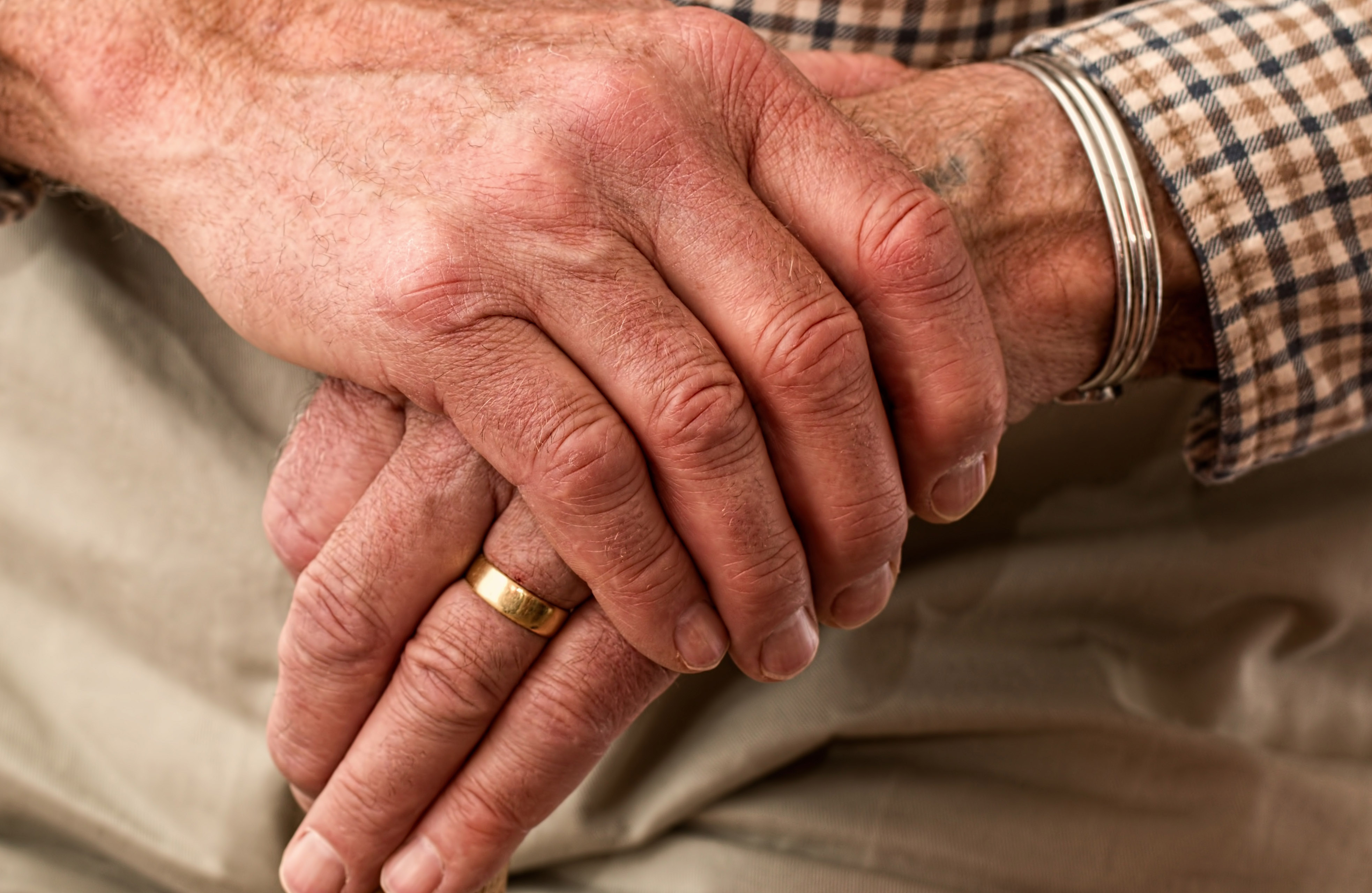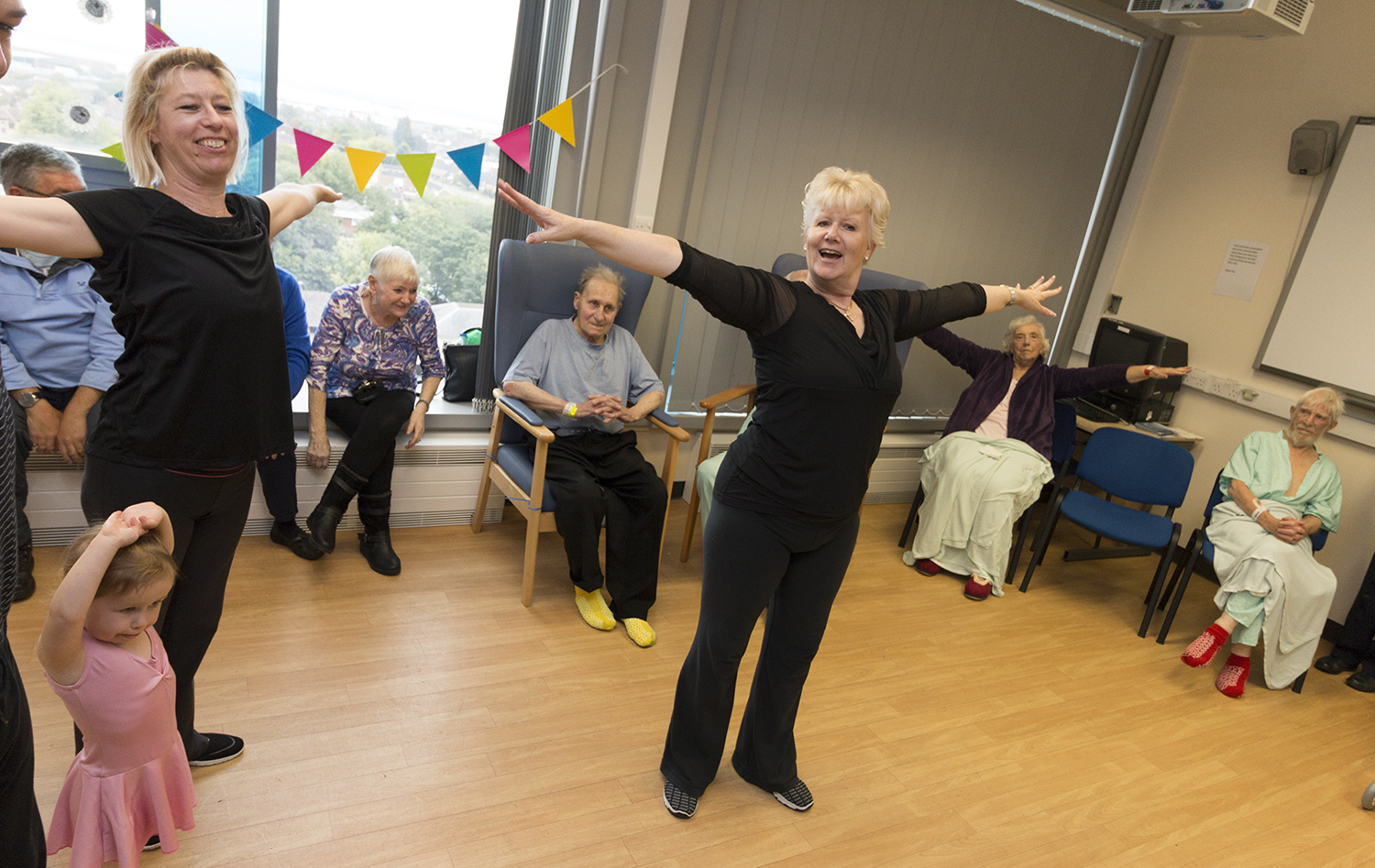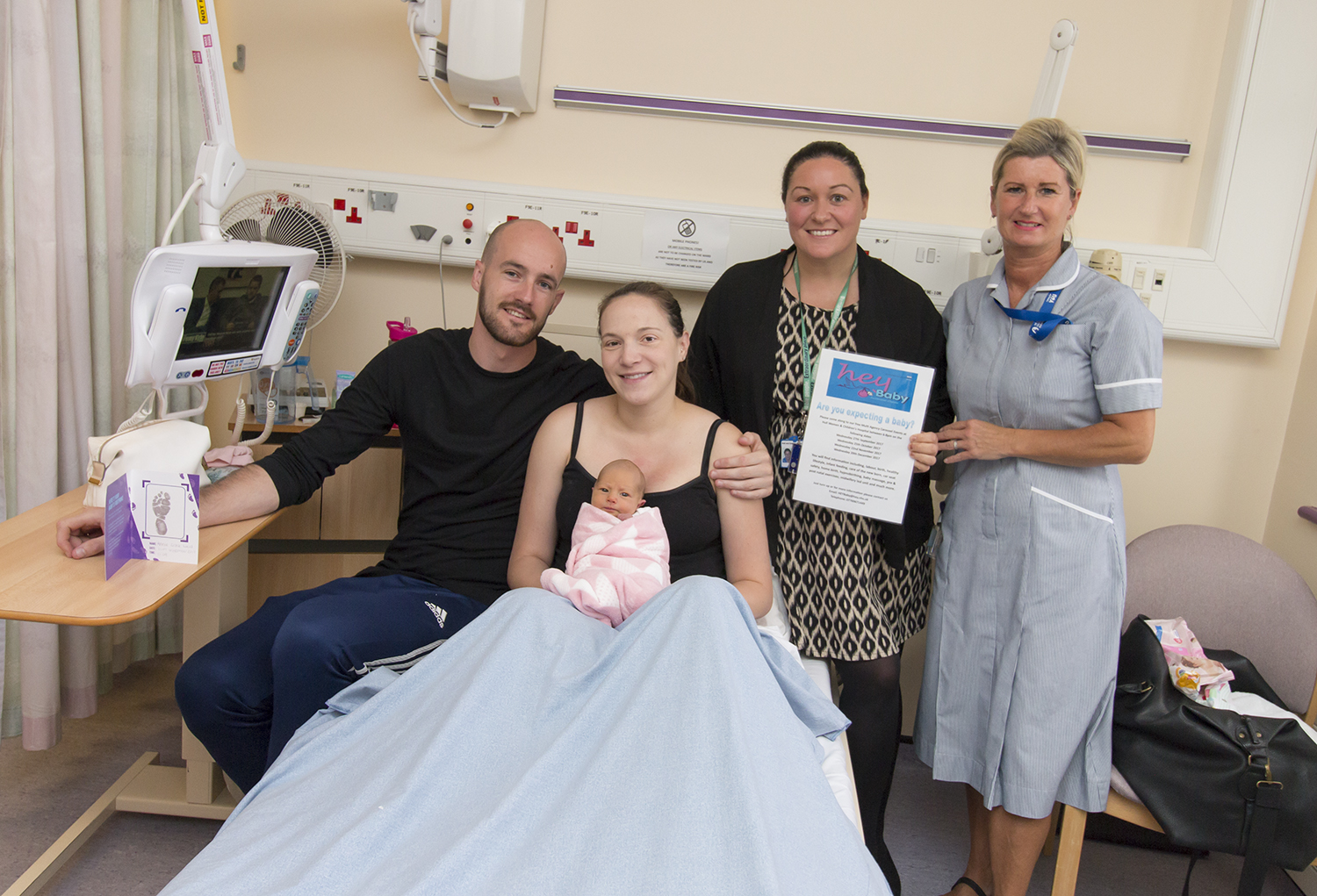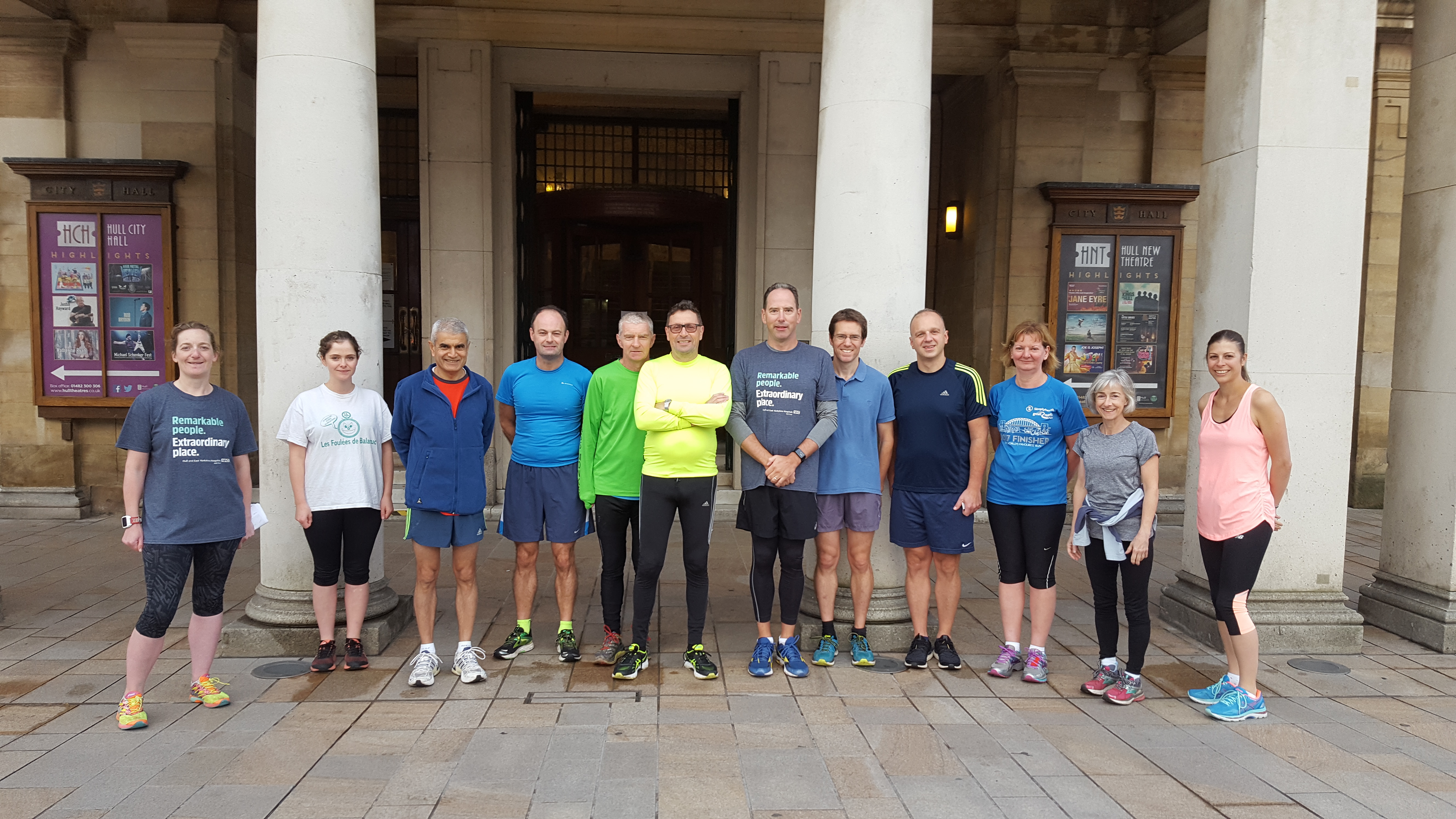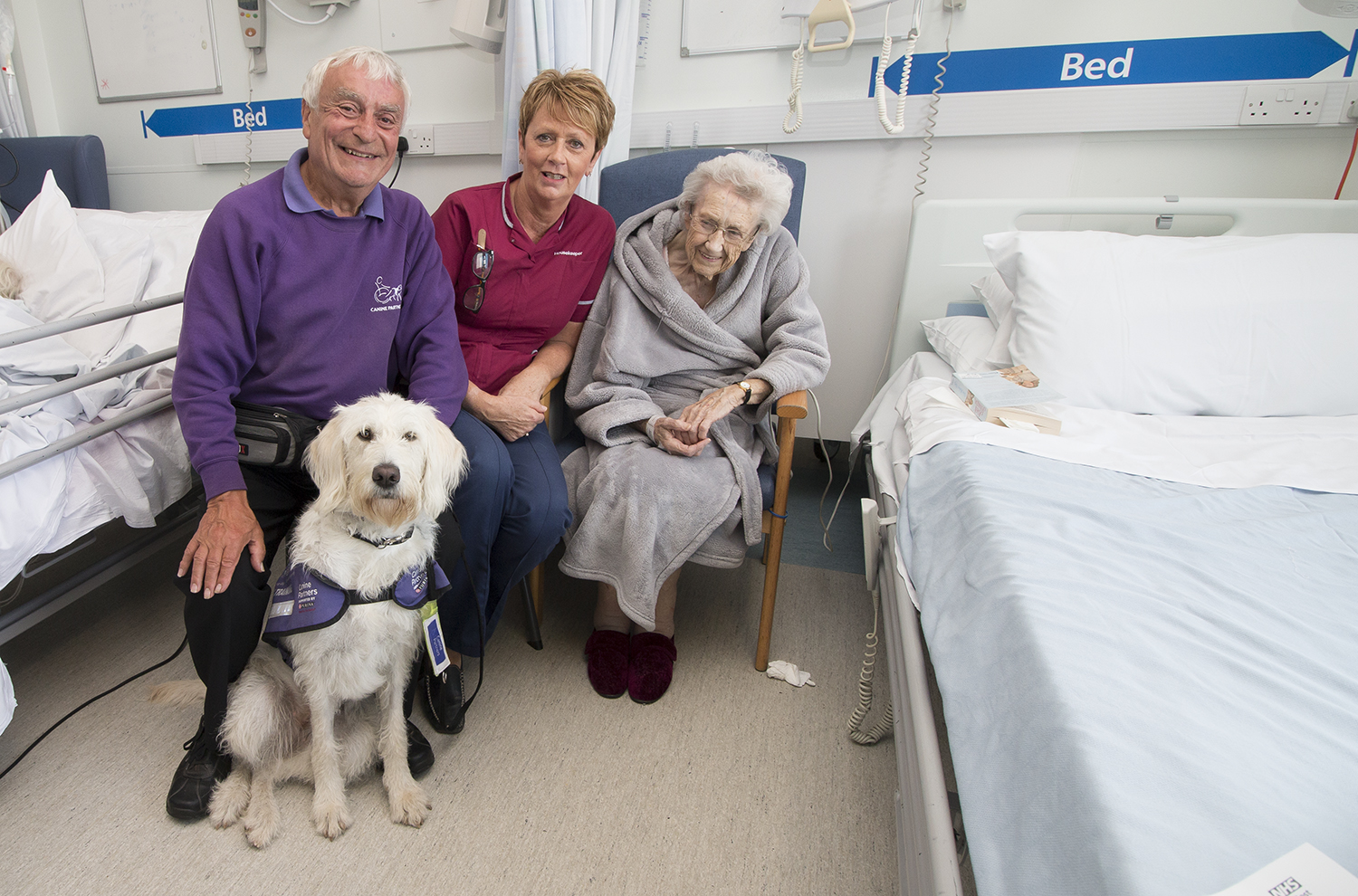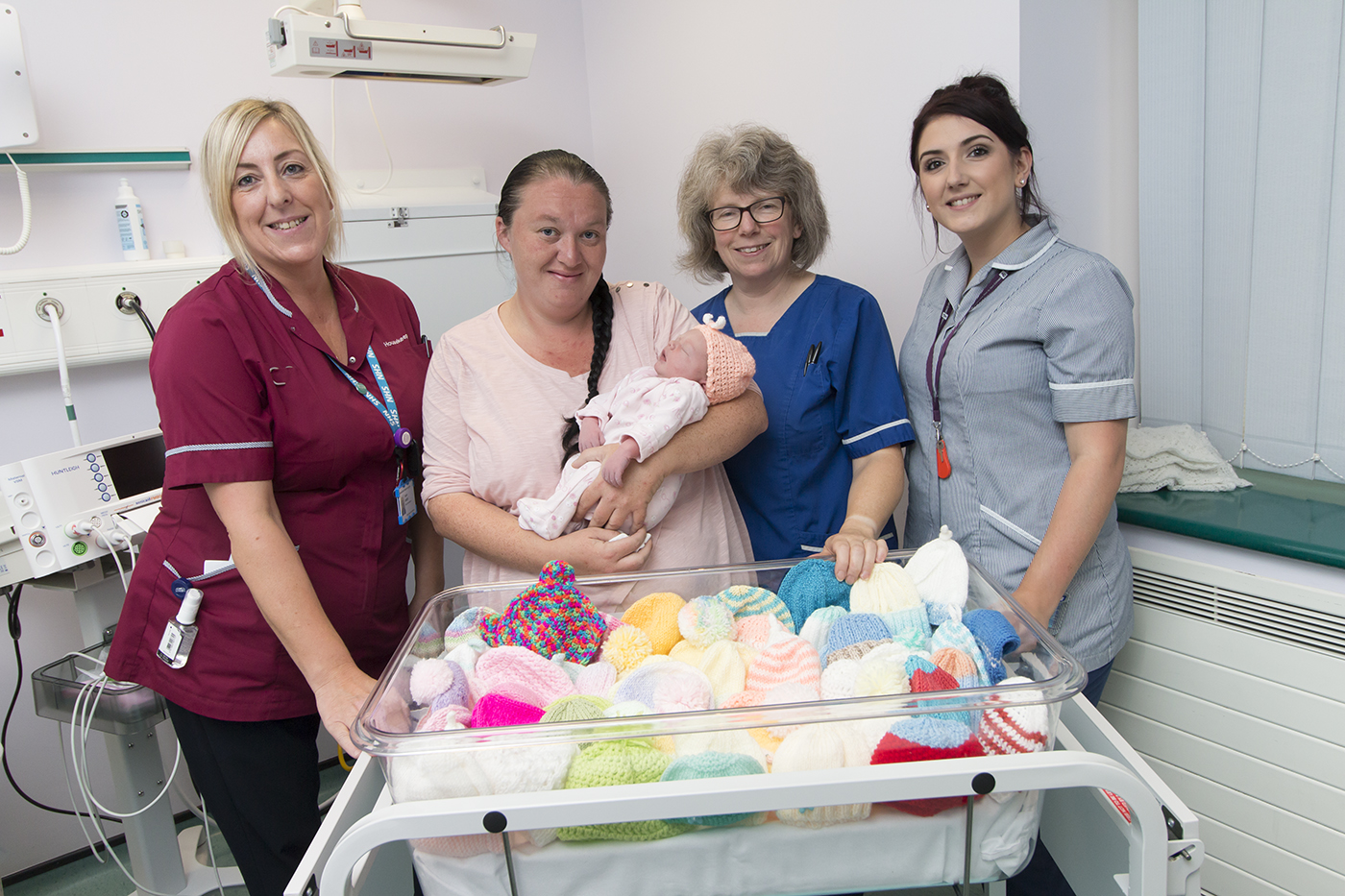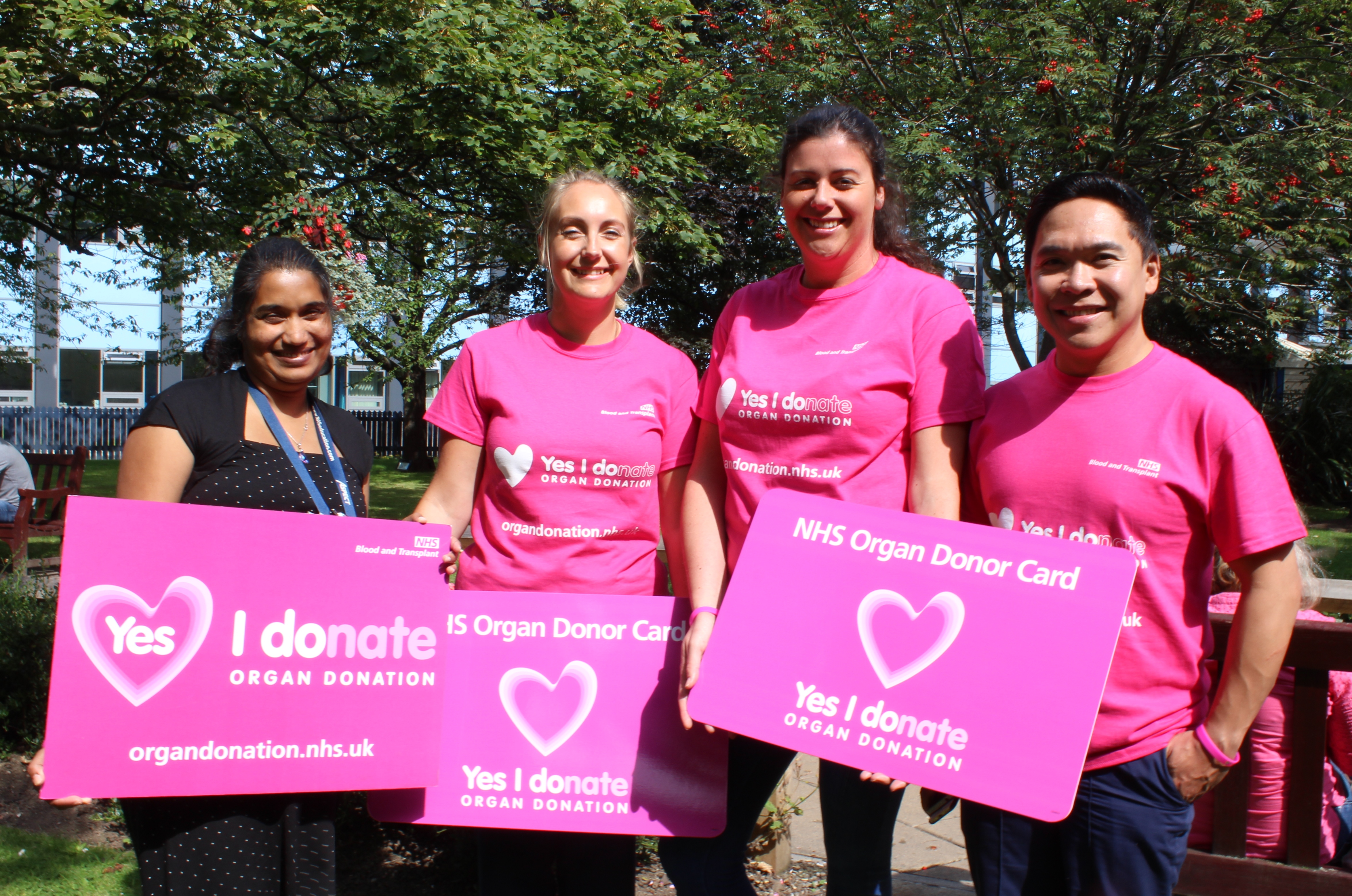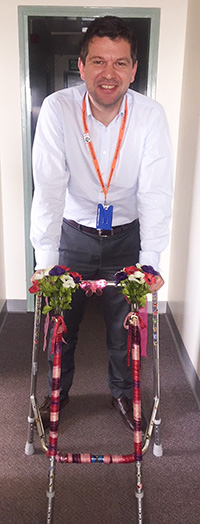
Dr Dan Harman with one of the decorated zimmer frames
Hospital consultants are bringing a “Pimp My Zimmer” event to Hull this week with the aim of reducing the risk of falling among older people.
Staff from Hull University Teaching Hospitals NHS Trust will set up a stand at Hull’s Health Expo at City Hall on Thursday to encourage people to decorate zimmer frames and walking aids.
Dr Katie Athorn, Dr Dan Harman and Dr Anna Folwell, consultants in the department of medical elderly at Hull Royal Infirmary, are spearheading the project after a similar scheme in Essex saw a 60 per cent reduction in falls.
An older person loses 10 per cent muscle mass for every week spent in hospital so preventing falls and reducing unnecessary hospital admissions is key to promoting a better quality of life.
On Thursday, families visiting Health Expo with older relatives can decorate walking aids with wool or fabric, feathers or coloured paper so they can be easily identified and sessions can be booked online: Pimp My Zimmer! Reducing Falls Project Mini Sessions.
Dr Athorn is a member of the East Riding care home working group with representation from the acute trust, primary care, East Riding of Yorkshire Council and care homes in East Riding and she presented the idea after learning of the successful and innovative project that started in an Essex care home.
She said: “It started off as a recreational idea to keep residents entertained but staff found that, as a direct result, people took ownership of their zimmer frames and remembered to use them.
“Using the wrong zimmer frame which hasn’t been adjusted for your height can result in someone losing their balance so this helped people use the right frames, not just any one lying around.
“They saw a reduction in falls and I shared it with our working group for discussion.
“A couple of the care homes tried it and had a wonderful response, with not only the residents thoroughly enjoying the opportunity to be creative, but also resulting in a reduction in falls of between 40 to 60 per cent and fewer ambulance attendances and hospital admissions as a result.”
Dr Harman said decorating walking aids was something older people could do with their carers or grandchildren.
He said: “While this has a practical benefit in reducing the risk of falls, there’s also a social inclusion side to this as it’s a fun activity people can do with their families and carers.”
“Pimp My Zimmer” will be among about 80 stalls at the major health event on Thursday showcasing the best in healthcare innovation.
From clinical simulation “mannekins” to the Da Vinci robot, visitors will be able to see how modern techniques and new ideas are responsible for major advances in hospital care.

